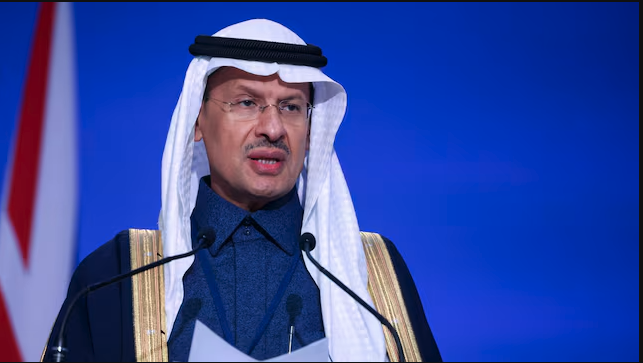RIYADH: Saudi Arabia’s real estate tech platform Ejari secured the largest startup investment across the Middle East and North Africa in October as the region faced a funding slowdown.
The firm benefited from a $14.65 million seed financing round led by PFG and BECO Capital, underscoring the importance of early-stage investments.
This success came against a backdrop of a funding fall for the MENA region, which saw $134 million secured across 56 deals.
This represented a 52 percent month-on-month decline and a 13 percent decrease from the same period last year, indicating ongoing challenges in the region’s investment climate, according to Wamda’s monthly report.
Debt financing played a notable role, accounting for $28.4 million, or 21 percent of the total amount.
UAE-based startups led the region, raising $61.8 million across 15 deals, while Saudi Arabia followed closely with $50 million raised across 21 transactions.
Kuwait’s position was boosted by property technology firm Sakan’s $12 million round, contributing to a total of $13.5 million secured by Kuwaiti entrepreneurs.
The Egyptian startup scene struggled, with only eight startups raising a combined $1.6 million, highlighting a sharp downturn.
Meanwhile, Tunisian and Qatari startups performed comparatively well, securing $3 million and $2.7 million, respectively.
Fintech, which had dominated the region’s funding landscape earlier in the year, fell to second place in October.
Proptech took the lead, attracting $38 million over five deals.
The e-commerce sector raised $14.6 million, while education technology startups secured $11 million across seven deals.
Investor preference leaned toward early-stage startups, with seed funding accounting for $40 million, or 30 percent of the total raised.
Series A investments reached $20 million across three deals, and pre-seed funding contributed $15.5 million. Notably, nine startups secured $25.8 million without disclosing their stage.
The business-to-consumer model was the favored choice, garnering $83.8 million across 19 startups, while business-to-business ventures attracted $42.4 million over 27 deals.
Ten startups operating a hybrid model received nearly $8 million.
Female-founded firms saw an encouraging rise, collectively raising $10.5 million across four transactions.
However, male-founded startups continued to dominate, securing $115 million across 31 deals.
Saudi open banking startup Lean closes $67.5m in series B round
Lean Technologies, a Saudi-based open banking platform, has raised $67.5 million in a series B funding round led by US-based General Catalyst.
This round marks one of the largest equity investments by a US venture capital firm in Saudi Arabia’s fintech sector. Other participants included Bain Capital Ventures, Duquesne Family Office, and Arbor Ventures.
Founded in 2019 by Hisham Al-Falih, Ashu Gupta, and Aditya Sarkar, Lean provides businesses with access to bank data and payment solutions.
The company, regulated by the Abu Dhabi Global Market, claims it has processed over $2 billion in transactions through its account-to-account payment offerings, serving clients like e&, DAMAC, and Careem.
In Saudi Arabia, Lean’s launch of data services under the Saudi Central Bank’s regulatory sandbox has facilitated nearly 1 million bank account verifications, supporting clients in sectors such as insurance, lending, and e-commerce, including companies like Tawuniya, Abdul Latif Jameel Finance, and Salla, as well as Tabby, and Tamara.
Al-Falih, CEO of Lean Technologies, stated that the funding will be used to expand Lean’s product offerings and support its growth strategy across the Middle East.
“Our aim is to enhance the financial ecosystem by providing accessible solutions that meet the needs of businesses and consumers alike,” Al-Falih said.
Neeraj Arora, managing director at General Catalyst, said: “Lean has demonstrated a strong commitment to solving local market needs and has earned significant customer loyalty. We see Lean as a key player in building the infrastructure needed for the region’s fintech growth.”
The new funding is expected to bolster Lean’s pay-by-bank and open banking solutions, allowing the company to scale operations and deepen its market presence in the region.
UnifyApps secures $20m to fuel ME expansion
UAE-based Software-as-a-Service solutions provider UnifyApps has closed a $20 million series A funding round led by Iconiq Growth, with participation from Elevation Capital.
The round brings UnifyApps’ total funding to $31 million since its inception in 2023. The company, co-founded by Pavitar Singh, Abhishek Khurana, focuses on automating enterprise workflows across multiple applications.
“UnifyApps understands that you need a holistic approach to achieve trusted, effective AI agents,” said Matt Jacobson, general partner at Iconiq Growth.
“By aligning every data source and application to an enterprise use, they are enabling AI to actually understand and orchestrate work,” he added.
Pavitar Singh, CEO of UnifyApps, emphasized the strategic value of the new partnership: “UnifyApps is deeply grateful for the opportunity to work with Iconiq Growth. Their deep network and partnership will be instrumental in our next stage of growth as we bring our AI agent platform to enterprises everywhere.”
UAE’s Epik Foods raises $15.5m
Epik Foods, a UAE-based food and beverage group, has raised $15.5 million in private capital funding from Ruya Private Capital I, LP, a fund managed by Ruya Partners.
The funding will be used for acquisitions, working capital, and supporting the company’s expansion plans, particularly into Saudi Arabia, as well as strengthening its presence in the UAE.
Established by Khaled Fadly and Ranya Basyuni, Epik Foods was formed in 2023 following a merger of three F&B entities – KR&CO, Sweetheart Kitchen, and Happy Platters Kitchens – in partnership with Gulf Islamic Investments, a Shariah-compliant global investment firm which manages over $4.5 billion in assets.
Epik Foods currently oversees a portfolio of 60 food and beverage brands operating across 50 locations in the UAE and Saudi Arabia, with an additional 20 outlets slated to open as part of its ongoing expansion strategy.
Efreshli advances interior design tech with new funding round
Egyptian interior design startup Efreshli has raised an undisclosed amount in its latest seed round, led by Algebra Ventures.
The round also saw participation from 500 Startups, Dar Ventures, and various angel investors.
Founded in 2019 by Heba El-Gabaly, Efreshli leverages virtual decor tools to help customers visualize room setups before making purchases.
CEO El-Gabaly expressed optimism about the company’s growth trajectory, saying: “I’m excited about this significant milestone for Efreshli. With new funding and with Dina El-Haddad joining as co-founder and CPO (chief product officer), we can accelerate our tech-driven growth and take Efreshli to new heights.”
El-Haddad added: “I’m thrilled to be part of Efreshli’s journey to revolutionize the home furnishing experience. Efreshli’s future is more than just furniture; it’s about building an entire ecosystem. With innovations like Efreshli Pro, we’re connecting the dots for everyone, from customers to designers.”
The new funding will be directed toward enhancing Efreshli’s offerings and expanding its product line, reinforcing its mission to make interior design accessible across the region.

































